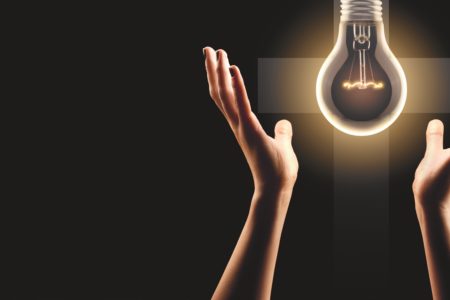By Stephen Acott
It’s 6.47am in sunny Samoa. The calendar says its September 29, 2009, but when the clock strikes 6.48am, Frank Rees won’t need a calendar to record this day. Mother nature will have that covered.
Frank, principal of Whitley College in Parkville, is in Samoa holidaying with his wife and daughter. At just 2800sqkm, Samoa is your quintessential, picture-postcard speck in the ocean. This is a place to lose yourself, or maybe find yourself, depending on your circumstances – either way, not much happens in Samoa, so “relax” is at the top of most people’s to-do lists.
Frank won’t be relaxing today, as he’s about to discover.
At 6.48am, Frank wakes to the sound of rumbling. The room is shaking, furniture is moving. Frank has never experienced an earthquake before, but he doesn’t need a second opinion – this is an earthquake, 8.1 on the Richter scale. Some things just explain themselves.
His wife is also woken by the clatter and, not knowing quite what to do, the two of them run outside. This doesn’t really achieve anything and, besides, they’re not fully dressed so they return to their room, put on some extra clothes and head back outside.
By now there’s a siren blaring and one of the staff members is running around shouting the word “tsunami”.
Tsunami? Did he just say “tsunami”?
Frank doesn’t have time to fully digest the word, much less its implications. Before he knows it he’s underwater, trying to negotiate the non-negotiable.
“I’m under a wave that is carrying me away and thinking I’m about to drown,” he recalls. The moment is as vivid now, 11 years down the track, as it was then.
“My wife was carried in one direction inland and my daughter and I were carried into the rubble of the building we had been staying in. After the first big wave, I tried to swim, tried to swim, tried to swim, but in the end I couldn’t. But the wave had smashed up the building and we ended up on the ledge of a part of what was left of one wall.
“When I finally got my head above water, I found my daughter and we started to walk uphill. I had six broken ribs and a whole lot of other injuries and I was in excruciating pain, but we made it.
“We didn’t know if my wife was alive, and she didn’t know if we were alive, but we managed to find each other about an hour later.”
Each of us have had moments in our lives we’ll never forget, moments that have helped shape us and shift us and even define us. Your wedding day, for example.
Some of these moments are so totemic we aren’t the same person afterwards. We are irreversibly different. The birth of your first child, for example. Or surviving a tsunami.
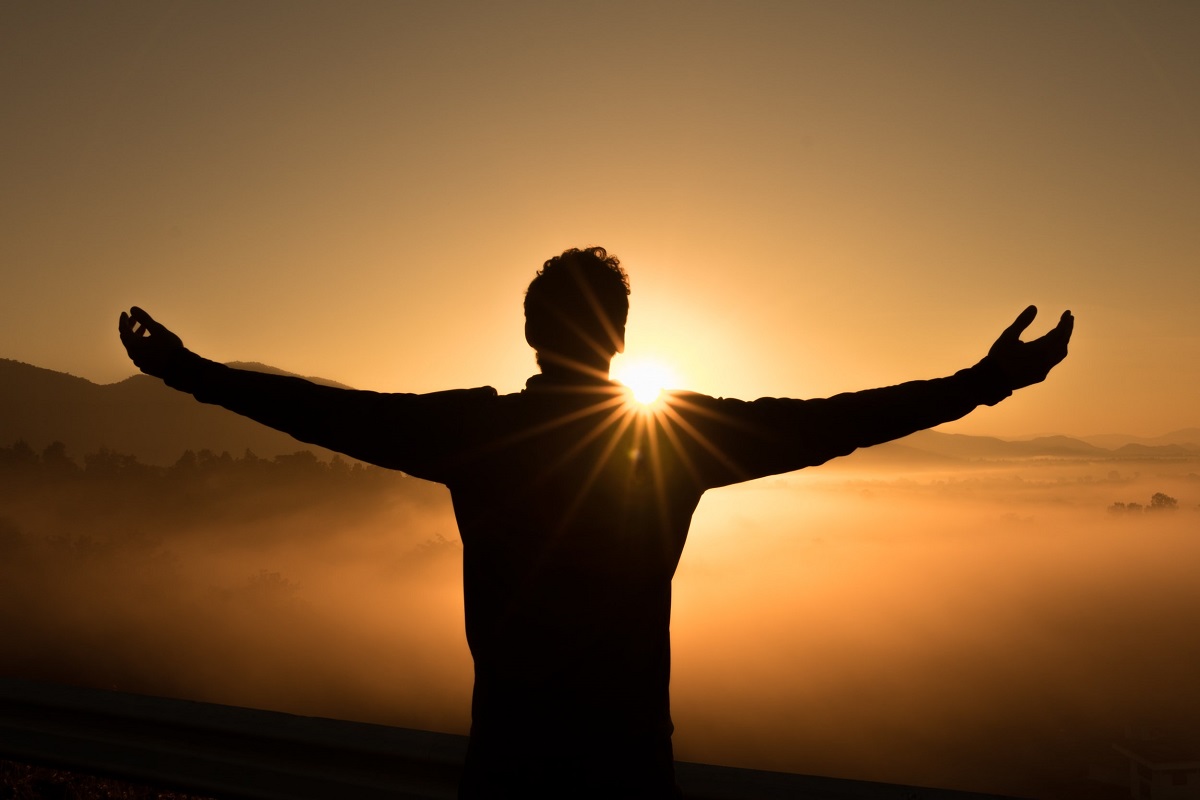
“I had the sense then that I’d been given another chance at life,” Frank, now a Reverend Associate Professor at the University of Divinity, says. “And I determined that I would do things that I really believed were worthwhile, put up with a lot less crap, and articulate as best I could the idea of a God who is with us in life, inviting us to life.
“The tsunami literally took away from me everything that I had, all of the possessions I’d taken to the island. I had no mobile phone, wallet, no credit cards, no clothes. When everything is taken from us, we discover what really matters, and that’s the potential for a new sense of faith, a new sense of that trusting and belonging. What can you really trust? Well, you can trust yourself and each other in the face of everything else being lost. And that I think is the potential for faith in God beyond ideas, beyond the idea of the God who pulls the strings and causes things.”
If you don’t have faith before a tsunami sweeps you to within an inch of your life, chances are you might have it once you wake up and have time to comprehend what just happened. Frank, now 70, lived to further his life. As did his wife and daughter. But 149 people weren’t so fortunate that day. Why did Frank live?
Frank, who is also an author and blogger, says he’s never tried to answer that question and who can blame him? There is no answer, just a responsibility to not take life for granted.
“I don’t think you can answer it with ideas,” he says. “The great temptation of Western thought is wanting to explain everything. I’m all in favour of trying to understand things, but I think there are times when we can’t understand and instead we need to respond. So for those who died, and this is happening all the time in different contexts, we have to respond with appropriate compassion and gratitude, gratitude for them, for what they gave to life, but also gratitude for our life. So that’s my response – not to explain ‘why me?’, but to say ‘thank God. I’m alive. I’m going to live’.”
The thing is, Frank didn’t need a tsunami to find faith or have faith. He’d been a man of faith long before he hopped on a plane to Samoa. He can’t pinpoint a precise “lightbulb” moment but remembers listening to a preacher back when he was 15 that had a marked influence on his faith.
“He was talking about the kind of faith that people can switch on and switch off according to whether it was convenient or not,” Frank says. “And I thought that whatever faith I was going to affirm it had to be fair dinkum. I was either going to be in or out. And that’s basically been my affirmation – I don’t want to pretend – so if I can’t articulate something, I’m not going to pretend. And authenticity as faith is trusting honesty. Honest trusting includes some believing and some ‘I’m not sure what to believe’ – actions that try to express oneself honestly.”
Faith is not a foreign concept. And yet, and yet … do we really, truly understand what it is? Do we have different definitions? Different parameters? Different levels? Can you switch it on and off, as the preacher described to Frank?
Faith isn’t hard to find; like everything nowadays, it’s only a mouse click away. It’s right there in Google, on YouTube, Instagram, Pinterest … any and all manner of platforms. Some of it is superficial, some of it is as deep and complex as a theological PhD. People have written countless books and poems and songs on the topic, there’s been movies and art and mass gatherings – you won’t struggle to find faith, but having faith, well that’s something else altogether.
How do you get faith? What does it involve? Is there a guidebook? A set of rules? Is it a case of simply believing?
Well, no.
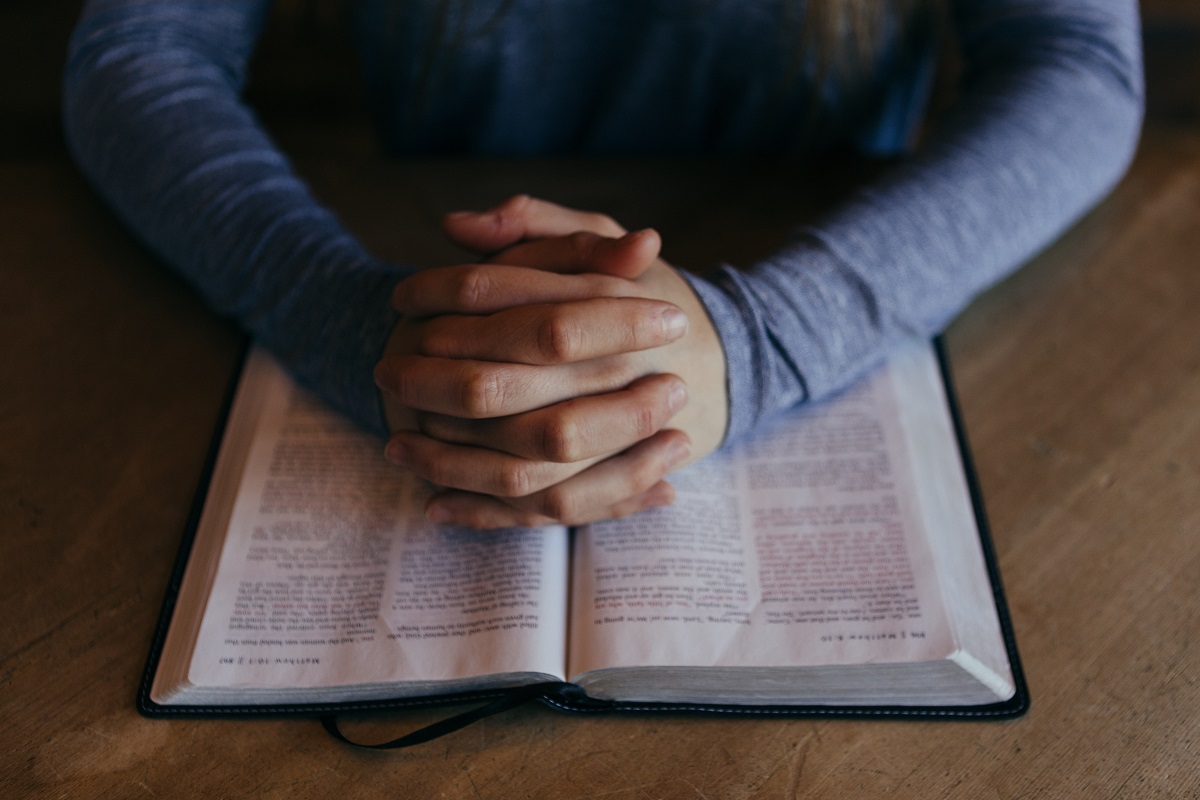
Fr Richard Rohr is a Catholic priest and highly acclaimed spiritual writer. Highly acclaimed and prolific. Chances are he’s written four or five books while we’ve been in lockdown. The point is, when it comes to matters of faith there isn’t an angle he hasn’t considered and explored in print.
“Most people think having faith means ‘to believe in Jesus’,” he says. “But, ‘to share in the faith of Jesus’ is a much richer concept. By myself, I don’t know how to have faith in God, but once we know that Jesus is the corporate stand-in for everybody, we know we have already been taken on the ride through death and back to life. All we can do now is make what is objectively true fully conscious for us.”
Objectively true. That’s an interesting statement to say as fact, particularly in a society where many would argue faith is subjective and occurs, thrives even, in the absence of proof. Even The Bible seems to suggest this view: “Faith is being sure of what you hope for and certain of what you cannot see.” (Hebrews 11:1)
Maybe we should let Richard explain himself further.
“Faith is not an intellectual acceptance of God, or believing certain doctrines to be true,” he says. “Such intellectual ascent does not usually change your heart or your lifestyle. I’m convinced that much modern atheism is a result of such a heady and really ineffective definition of faith.
“God refuses to be known intellectually. God can only be loved and known in the act of love. Love is like a living organism, an active force-field upon which we can rely, from which we can draw, and which we can allow to pass through us.”
Rev Nadia Bolz-Weber is a theologian and three-times New York Times best-selling author. She agrees with Richard that faith is not “intellectually assenting to a set of theological propositions”. To her, faith is “trusting God’s promises”.
“Faith is trusting we are who God says we are, that God’s promises are being fulfilled among us even if we’re not seeing it,” she says.
Nadia, who agrees with Richard’s proposition that sharing in the faith of Jesus is a richer concept than simply believing in Him, has a phrase for faith: “team sport”.
“Faith isn’t given in sufficient quantities to individuals, it’s given in sufficient quantities to communities. Faith is a team sport, it’s not an individual competition,” she says.
This is an interesting concept and one worth exploring further because everyone interviewed for this story said their faith was deeply personal and not in short supply. Yes, they belonged to a faith community – and rejoiced in the fact – but their faith was imbedded in their soul, it was part of their being. It was personal, almost individually-tailored.
Gus Yearsley is the state officer of the Tasmanian Council of Churches Emergency Ministry. Now 53, he grew up in what he describes as a “Christian household”, but says it took until his teens for his faith to get a strong foothold in his life.
“Faith is very personal,” he says. “For me, faith is about serving people and loving people and being a good example of who I think Jesus would be and represent Him as best I can.”
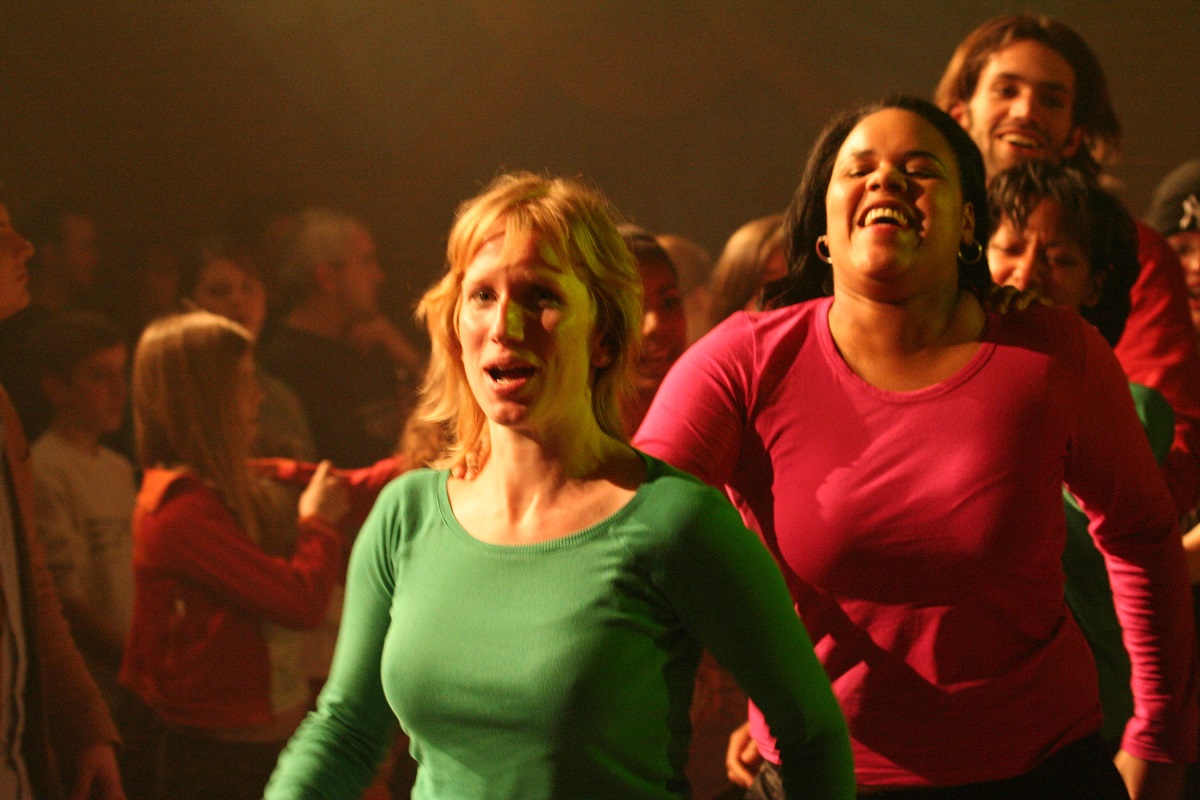
Brunssum, the Netherlands, – October 18, 2014. Performence of a dance and worship group, organised for the youth of the local Pentecostal Church.
Or, as Hampton Park UC member Diane Leak puts it, faith is about “doing stuff”. “The best thing I can do is live out my faith,” she says. “I’ve become quite involved with what we’re doing at Uniting Place, which is what we call the church building. Before lockdown, we offered free lunches twice a week. And I was involved with religious education for about 30 years with the local schools. That was a bit of a seed-sowing ministry.”
If we accept that faith is fundamental to the human condition, it’s interesting to consider the fact we aren’t born with it. Faith is something we have to find, or allow ourselves to find, or allow faith to find us.
Think about when you first truly had faith? Did you hunt high and low for it? Or did it come to you in a rather roundabout, unexpected way? Revealing itself only when you were truly ready to receive it?
Richard says we “don’t really do faith”. “It happens to you when you give up control and all the steering of your ship,” he says. “Frankly, we often do it when we have no other choice. Faith hardly ever happens when we rush to judgment or seek too-quick resolution of anything. Thus, you see why faith will invariably be a minority and suspect position. You fall into it more than ever fully choosing it.
“Many scholars have pointed out that what is usually translated in Paul’s letters as ‘faith in Christ’ would be more accurately translated as ‘the faith of Christ’. It’s more than a change of prepositions. It means we are all participating – with varying degrees of resistance and consent – in the faith journey that Jesus has already walked.”
What does he mean when he says “you don’t really do faith”? Does he mean “faith” is not a verb? If so, he has an ally in Frank.
“One of the really unfortunate things in the English language is that we don’t actually have a verb for faith,” he says. “We don’t have ‘faithing’ in the way that the Bible does and, therefore, all too often people think of faith in terms of ‘do you believe?’ and when you get to belief then you get to specific ideas and content and a great deal of the theological tradition is focused on that, unfortunately.
“It’s really important to say that faith is a personal and relational stance in life. It has much more to do with trust and relating and engaging than it has to do with the traditional focus on belief.
“Faith is a natural human responsiveness to life itself. And it is a stance that involves relationships and ethics, action, emotions as well as some intellectual content. But for a great many people, the intellectual content is either not well developed and often not expressed in words.”
Beth Woolsey is an American author, mother of five, very down to earth and someone who believes finding faith does take some searching on our part.
“Jesus said a lot of earth-shattering things,” she says, “but now that I’m a mum, I think this was one of the most radical of all: ‘Ask and it will be given to you; seek and you will find; knock and the door will be opened to you. For everyone who asks receives; the one who seeks finds; and to the one who knocks, the door will be opened.” (Matthew 7:7-8)
“It seems to me that Jesus’s words are a clear directive: ask, seek, knock. And then, if I’ve got this right, Jesus follows up a few verses later by saying that God will actually respond. God, the lover of us all, will reveal divine things. To me. To you. To anyone who asks. And God will do it without discretion or conditions. Without caution or prudence. Without making a list first of who has a right to which truth or who will handle the answers the best.
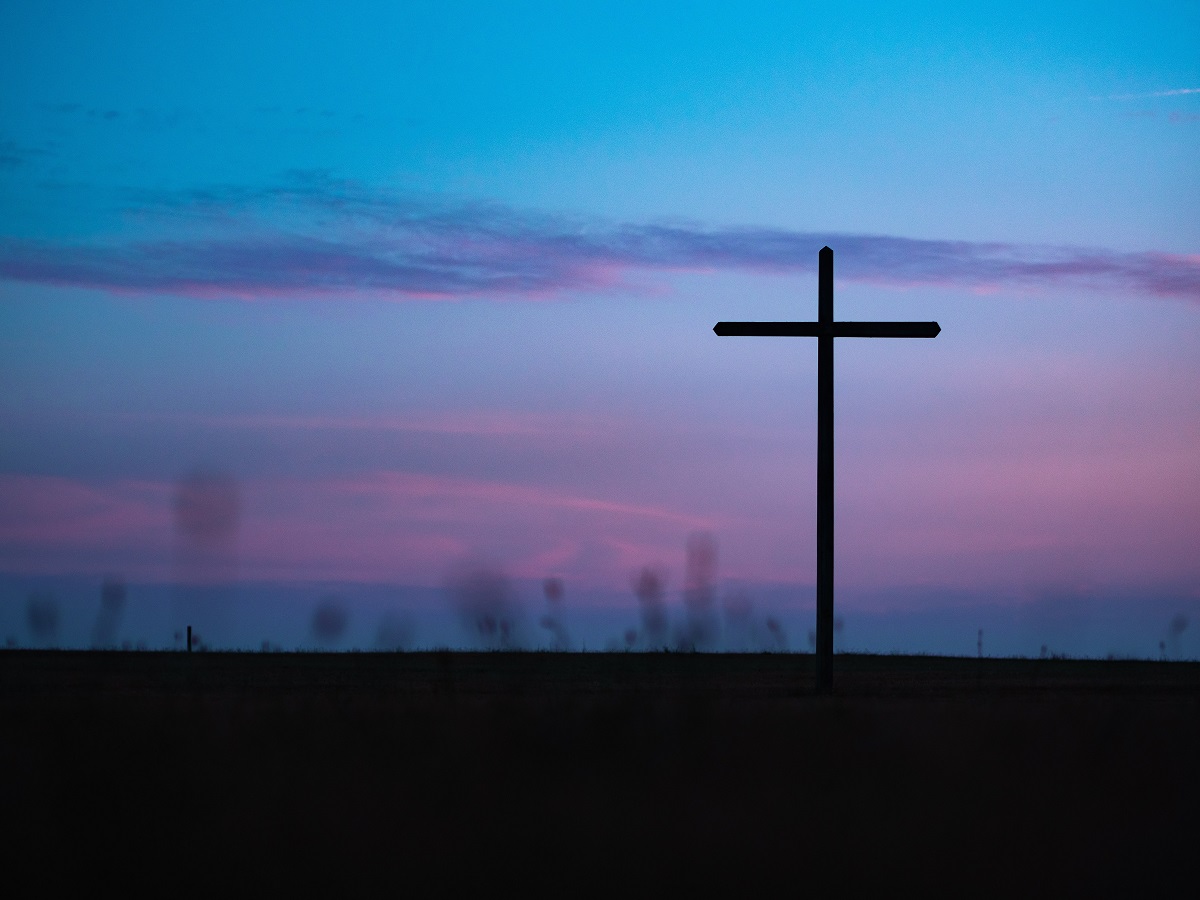
“The revolutionary, almost subversive, thing about asking is that it goes beyond making it OK to have secret questions and inner doubts and gives us permission to raise our hands in God’s classroom with a ‘pardon me, but I don’t get it’. Or ‘I just can’t bring myself to believe what the rest of your class is telling me’.
“I suspect – a sneaking suspicion that gets louder as I age – that we’re somehow expected to keep asking. Out loud. And to keep seeking. And to keep knocking. Which has crazy implications on parenting from a Jesus perspective because typically when we don’t know something, we pretend we do. That’s in the Parenting Manual. Or the Being a Grownup Manual. Or the Christianity Manual. Or maybe it’s just being human.
“I had a conversation recently with my father about whether we’re obligated as Christians to be aspirational. ‘Are we,’ I asked, ‘supposed to hold ourselves up as an example of the Godly life? Because I’m afraid I lack what it takes for others – my children, my friends, my blog readers – to want to aspire to be like me and, therefore, like God’.
“He replied: ‘What if the root word of aspiration isn’t only to aspire to? What if the root word of aspiration is also to aspirate? To expel or dislodge the things that make people choke? To tell a truth that is so wild and so free that it helps people learn to breathe? What if you’re called to be that kind of aspiration?’
“And I thought, ‘by God, if this life is about helping people breathe, I can do that’.
“Ask. Seek. Knock. Breathe.”
And if you ask and seek and knock and breathe and discover something, what do you do? Believe? Have faith? Or are they one and the same thing? Of course they’re not. In fact, according to outspoken agnostic (and author) Lesley Hazleton, faith can flourish in the absence of belief.
Lesley, 75, says “doubt is essential to faith”. “Demolish all doubt and what is left is absolute, heartless conviction,” she says. “You are certain you possess ‘The Truth’ and this certainty quickly devolves into dogmatism and righteousness – in short, the arrogance of fundamentalism. Like fundamentalists of all Christian stripes they have no questions, only answers. They’ve found the perfect antidote to thought and the ideal refuge from the hard demands of real faith. We have to recognise that real faith has no easy answers.
“Faith is not hard to find. It’s difficult and stubborn and involves an ongoing struggle, a continuing questioning of what we think we know, a wrestling with issues and ideas. It goes hand in hand with doubt and sometimes in conscious defiance of it. And this conscious defiance is why I, as an agnostic, can still have faith.
“What drives us is that, despite our doubts, and even because of our doubts, we reject the nihilism of despair. We insist on faith in the future and in each other. Call us naïve or impossibly idealistic, but call it human.”

Tanya Walker, 44, is a wife and mother and lay leader at Benalla UC. She is also a witness to a remarkable occurrence at her fortnightly Sunday worship. “I have a friend who comes every two weeks, reads the Bible with us, prays with us, but she keeps saying she doesn’t believe in God.
“I’m always intrigued about what is going through her mind. I’ve had several conversations with her about it and I think, for her, there’s too much of the faith aspect tied up with religion. And so the religion side of things puts up this massive barrier for people opening themselves up to actually believing in something.
“She said ‘I believe in Mother Earth’ and I think we’re just using different names, really. I think what you believe in and what I believe in is probably closer than we think. You’re very adamant about saying ‘I don’t believe in God’ because you have this picture of what you think God is, but if we break it down, it’s closer than we think it is.”
Diane had an interesting encounter once with someone who believed in extra terrestrials. “He said he had no faith, but believed there was something ‘out there’ so I think underneath all that he had some kind of faith,” she says. “We both believed there was something out there beyond us that we don’t understand and sometimes we just have to accept that those things are there. We don’t know everything.”
Gus’s job sees him working with people of many faiths. He describes it as “an interesting space” and it has taught him that “faith means different things to different people, depending on their belief system”. It has also taught him that, no matter what “brand” your faith may be, questions always linger. There is always an element of the unknown.
“There are some questions we just can’t answer,” he says. “But that doesn’t undermine my faith in God.”
Faith may come in many ways and many forms to many people – there is no single “faith” packet you can grab off the supermarket shelf – so it shouldn’t come as a surprise to discover that once you have it, your experience with it, how it nurtures and nourishes you, will be relatively unique.
When asked to describe what faith provides, Tanya offers just one word: “Freedom.” When asked to explain, she says: “People without faith are missing out on a sense of hope, but also an element of freedom. By this I mean many people are living with the expectations that society and others put on them, sometimes it is what they put on themselves – an expectation to live up to what others want them to be and, in many cases, falling short time and again. This leads to feelings of inadequacy and failure and causes anxiety and stress.
“For example, a friend of mine who is a mother of three small children thinks that for her to have a good life she needs to be the ideal mother and not get things wrong. She needs to have more and more possessions in order to keep up with what is new and fashionable. She dresses nicely, she portrays herself as having an idyllic life, but when we dig deeper, she has many mental challenges that stem from the expectations she feels are on her. These mental challenges manifest themselves in physical ways on her body and cause more issues. The push in our world is to have more, to achieve more and to be more.
“My point is that having faith in a God who loves us no matter what and knowing that God forgives us when we muck up, gives me a sense of freedom in the way I live my life, that we don’t have in other ways.
“We don’t have to get it perfect, we don’t have to have everything, because ultimately that doesn’t matter and, if people judge us for what we don’t have or what they think we don’t have, then it doesn’t matter because I know that God loves me no matter what and that is more powerful than all other things. This gives me the freedom to not worry about everything else, but instead to put my energies into trying to love others as God loves us. Because that will make the world a better place. I don’t always get it right, but it is in the trying that God shows grace.”
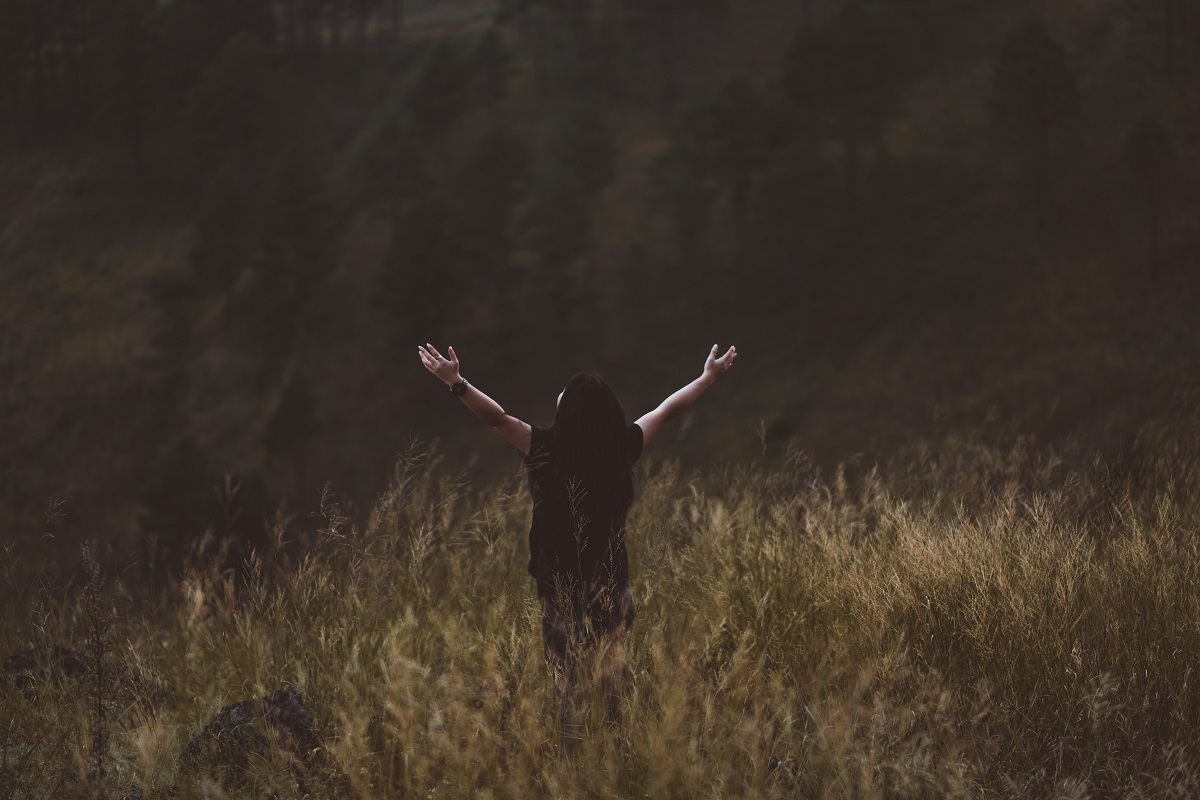
Frank says faith provides “a framework of ethics, a life style”. “What we often call a ‘lifestyle’ is actually a ‘deathstyle’ – it’s life-denying,” he says. “And I think faith provides a life style, the Christian faith with its affirmation of death and resurrection is actually a way to live.”
Sometimes, when trying to gauge the worth of something, it pays to think of what the world would look like without it. Just how essential is it really? When push came to shove, could we live without it?
Diane says a world without faith is not a world we would recognise. “It wouldn’t work,” she says adamantly.
“Faith and love and hope are what carry us through this world. We are moving to a place where faith is in the margins, but I think we’ll move back again. Throughout history it has swung backwards and forwards. I don’t believe God will ever leave the world.”
Frank believes the swing back is already happening and is there for all to see. “I call it bikes, Bunnings and brunch,” he says.
“Sundays used to be preserved for church by a portion of society, but these days we see an extraordinary number of people exercising or doing healthy things. You see people doing stuff about homemaking, to enhance their homes. And others get together for brunch. Now those three things are immensely life-affirming and the getting together part of it is enormously important. Inherent in all that is a quest for life, the quest for belonging, the quest for a kind of life that affirms, rather than divides, the kind of life that is growing and nurturing, rather than stultifying.
“And the future of faith is with that movement and I’m hopeful that out of all that we might reclaim the ideas of justice, peace, Shalom. And God is already in all of that. The church has never had an adequate doctrine of the Holy Spirit and if we believe that the Holy Spirit is the spirit of the whole creation and not just limited to people who go to church then the Holy Spirit is at work in all of this stuff. That’s why I’m hopeful.”
Frank has every right to be hopeful and every reason to have perspective – he’s survived a tsunami. If that doesn’t grant you perspective, nothing will.


